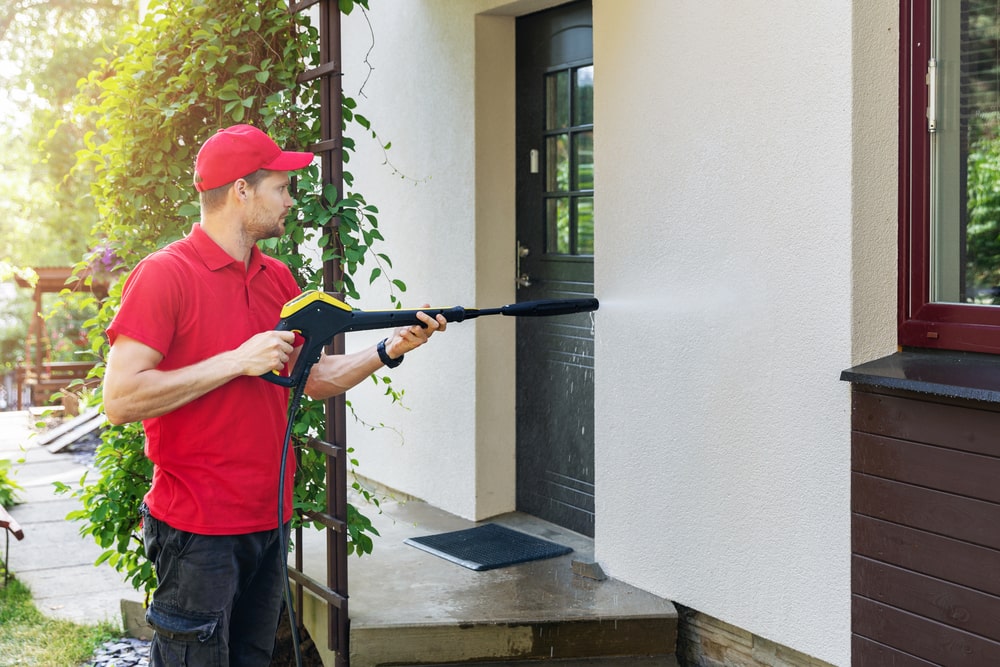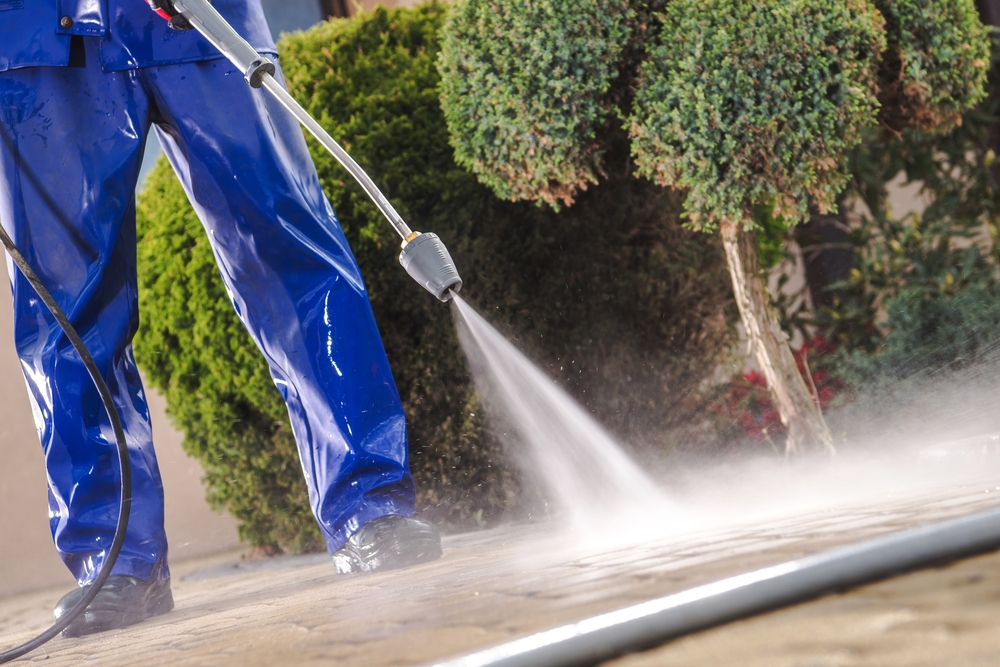Thinking about taking on the job of pressure washing your home, deck, vehicle, or walkways as a DIY project? Before you jump out there and start spraying things down like you’re using a garden hose with a bit of attitude, make sure you’re fully aware of what you’re getting yourself into and what you’ll need to be wary of as you work—lest you and your home end up looking worse for the wear.
Damage to Your Home and Property
We’ll start by talking about the risk to what you’re aiming at: your home and other property.
Wood
While you’re unlikely to completely destroy anything made of wood, you are quite likely to put grooves or scars into softer or harder woods, respectively, if you don’t use the equipment wisely. Small grooves may not be particularly noticeable, but they’ll prove a source for further damage down the line.
Paint
Hit paint on your home or anywhere else with too much power or at the wrong angle, and you’re very likely to chip it—or blast off a strip, if you’re really unlucky.
Sealants & Grout
It’s shockingly common for power washing to blast grout right out of tiles and brickwork and return well-sealed structures to their natural, easily damaged state.
Vinyl Siding
Vinyl siding is durable in the sense that it can last a long time, but direct too strong a focused beam of water on it in the wrong place and you’ll crack a hole right through it.
Windows
It shouldn’t be surprising that a device pushing 50x as hard as a garden hose can punch through many windows as if they weren’t even there. It only takes a momentary slip-up with the power too high to shower the interior of your home with glass and water.
Shingles
Planning to clean up your roof? Make sure you’re not blasting shingles free or sweeping away the adhesive holding them in place along with the dirt and mess you’re trying to get rid of.
Other DIY Pressure Washing Risks
Beyond the damage that you could cause to your home or property, there are a number of other things to consider before taking on this DIY project:
Poor Cleaning
Of course, the flip side of hitting your home too hard and taking chunks out of it is not using enough force, or the right kind of force, to actually get things nice and clean.
Relocating Mess Without Removing It
It’s very common to end up with a bunch of muck and grime cleaned off one place … and pushed to another, where it dries and stays until the next time (and it gets relocated again). There’s a bit of an art to sweeping away all the mess without spending a huge amount of time on the project or hitting something you shouldn’t with excessive force.
Visible Differences in Cleanness
It’s easy to end up with a pressure-washed driveway with a gradient, caused by tackling some parts more thoroughly and forcefully than others; in the worst cases, you’ll end up with striped concrete or lines of dirty, clean, and cleaner surfaces.
Safety
The biggest danger when pressure washing is, of course, not to property or aesthetics, but to people (and pets). Have you ever felt like a pressurized stream of water out of a hose stung a bit? Now imagine what a device pushing 50x or more than that power could do to you.
Pressure wounds
Pressure washers can cause a variety of bruises, cuts, breaks, and even punctures if you manage to hit someone or something with it inadvertently.
Electrical shock
Pressure washers use electricity to function, but you’re also working with a lot of water—and a device that could very well damage itself if you’re not careful. Electrical shock associated is surprisingly common occurrence for inexperienced users.
Chemical exposure
If you blast the wrong surface without paying attention, you may end up coated in a fine layer of chemicals you’d rather not have on your skin.
Falls
Pressure washing some parts of your home effectively is going to mean gaining height. Add all the other risks factors here to the normal dangers of heights during home DIY projects, and you can understand why many eager DIYers leave the task to the pros.
What a Professional Offers
So, you understand now that pressure washing is a moderately risky thing to tackle as a DIY. But choosing to leave everything to a pressure washing professional does more than just get you past those risks (or offload them onto someone else, at any rate).

A professional will bring to your home not only improved knowledge of how to do the job safely and effectively, but the right equipment for the job—including an assortment of different nozzles and other tools. This ready access to a variety of equipment suitable for different tasks can make a huge difference in the outcome and results of your project!
For professional pressure washing in St. Mary’s County, give Kings Power Washing a call!


Recent Comments